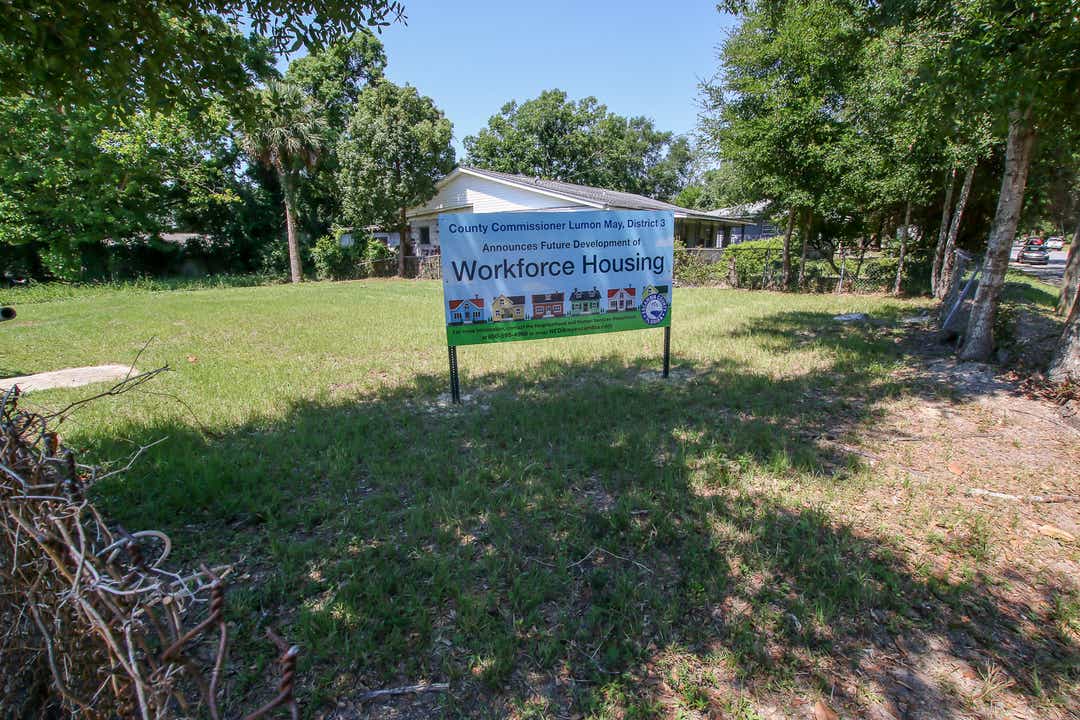Habitat affordable housing summit: 'We are now at epic proportions of unaffordability'
Kevin Robinson Pensacola News Journal
Published 6:56 PM EDT Aug 12, 2020
The problem with many affordable housing initiatives is they don't actually make homes cheaper, they just find new ways to put people in homes they can't afford, according to a nationally renowned urban planner.
Chuck Marohn, founder of the nonprofit Strong Towns, said the American housing system has a rigid structure built around putting people into 30-year mortgages. He said as a society, we find creative ways to help people stretch their finances to qualify for home loans — grants, subsidies and artificially reduced interest rates — but we don't do much to bring the cost of housing within comfortable reach.
"The bar to entry is, you must be able to qualify for a 30-year mortgage," Marohn said. "That means you must have a credit score of 720 or above. That means you must have a 40-hour-a-week job and have had that job for the last two years. That means you must have a credit card history that's positive. You've got all these barriers, but that's what you've got to do to play the game. What I'm saying is that there's a whole lot of people who can't play that game."
Pensacola sets big goals: 500 new affordable homes in 5 years? Here's how Pensacola plans to do it
Salaries not keeping up: Only 1 of Pensacola's top 10 jobs can support a 2-bed apartment, says Housing Coalition
Marohn and a panel of local experts discussed the continuum of housing in our area and what we can do to increase it Wednesday during a virtual Pensacola Habitat for Humanity housing summit. The event featured representatives from a variety of local organizations including 90 Works, the Area Housing Commission and members of the city of Pensacola's Affordable Housing Task Force.
The keynote speaker of the event, Marohn, said one of the key things communities can do to improve their housing stock is create housing options beyond just suburban single-family dwellings and sprawling apartment complexes.

"A couple of the quickest things that I think you can do to start that process is go towards accessory apartments, accessory dwelling units: basically allowing people to convert their garages into a house, convert their basement into a duplex unit. Allow people more flexibility to take the next step in building wealth and value in their house," Marohn said.
He said a century ago, what we would consider "tiny homes" today used to be just called starter homes. Young families started out in residences that were 500-, 600- or 700-square feet, then added rooms and stories as their families and salaries grew.
Closer look at accessory dwelling units: Key to affordable housing in Pensacola could be accessory dwelling units
Marohn said ideally, a homeowner should be able to walk into city hall with a request to make a reasonable addition to their home and walk out with a permit the same day. Marohn said the reality is most communities have complex webs of regulations and ordinances that prevent natural, incremental growth and change in neighborhoods, and that we've created a cumbersome, restrictive housing system that has proven to be unsustainable.
"We are now at epic proportions of unaffordability nationwide in terms of housing, and have created a very tenuous situation for ourselves," Marohn said.
Abe Singh, executive director of the local Area Housing Commission, said that currently, there are about 721 active public housing units in our community. Singh said there are close to 900 individuals and families on a waiting list for housing, with Singh estimating their wait time would be about two years.
He said most of that population is single mothers with children and many of them have difficulty transitioning to home ownership because most of their money goes to day-to-day needs. He added that many working-class families are in a similar boat, as the median wage in our area isn't enough to cover the cost of the area's median-priced home.
...tinyurlis.gdu.nuclck.ruulvis.netshrtco.de
